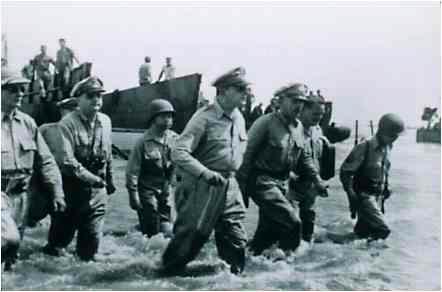Key Decision – Deciding to Play the French Horn in Fourth Grade
Key Belief – I wasn’t competitive in the mainstream; I needed to find a unique niche where I would achieve my own success
Tags: Key Decisions, Limiting Beliefs, Ownership & Dependence, Memoir

Yup – I can draw a line from playing the French Horn to flying jets in Europe.
The background begins with my mother. My mom is German. She was born and grew up in a traditional German home where classical music was considered “pop” just as lederhosen was considered chic. Growing up, I rarely heard any other music than that. Occasionally, on a family trip, we dad might squeeze in some Johnny Cash or perhaps John Denver; but mostly Ludwig Beethoven or Wolfgang Amadeus. So, in fourth grade, it was time to pick an instrument; and I was steered toward a more orchestral leaning, and the “French Horn” was picked.
While writing this, I asked my mom how this happened. She said when it was time to pick an instrument, I didn’t know what I wanted to play. She said a cousin in Germany was a famous French Horn player and maybe I’d want to do that… so I did (I guess)?!
Frankly, I don’t remember the choice; but I believe I participated in it and I consider it a “Key Decision” that influenced my extracurricular activities, it influenced how I was seen by others and most importantly, how I was seen by myself.
In that decision, I took on the persona of someone who chooses to be outside of the norm. My decision wasn’t the traditional, more expected orientation of my male peers to play drums or front-line brass (like a trumpet, trombone, or even saxophone) and certainly not the more classical expectations around woodwinds or strings. I found the French Horn to be in a unique niche; and I’ve continued to find success outside of the traditional, always looking for these niche opportunities. This cemented a belief that if I follow traditional strategies, I will end up average, normal or typical. I created a “key (or limiting) belief that the way to distinguish myself was to compete outside of what is expected.”
This thread can be pulled throughout my career and shows up in almost every key decision. And, as I am writing this, I realize this “key decision” of niche activity or “to rebel from the norm” resonates with me continuously.
I enjoyed playing “into” the French Horn as my personality, and was successful both in band and orchestra; being recognized and selected for Centennial (metro) and State Championships. My only high school “letter” came from playing the horn (adding insult to industry, it wasn’t the standard letter, it was a fluffy one ensuring it wouldn’t be confused with the Jock-oriented symbol. Similarly, I competed and was selected to tour Europe and compete internationally (third place worldwide) with another school’s orchestra.
But as I started to recognize this decision was not mine, I became dissatisfied. Who was I as a “French Horn Player?” The person I was (or wanted to be) did not play French Horn or play Piano but wanted to play team sports and compete physically.
However, because I was a late “bloomer,” in early high school I couldn’t compete in my age group. They were growing beards while I was growing up. So, in alignment with my niche strategy, I looked for alternative strategies. Luckily, my best friend (key-influencer) introduced me to Lacrosse in our Junior Year. Lacrosse in public high schools was a niche sport. At Littleton High School, the Hockey team played in the Lacrosse “Club” to stay fit off-season. We were not a school-sanctioned sport, so we played as a club and trained anywhere we could find an empty field.
I joined the club and ultimately was satisfied because I owned this decision. I continued playing in the band; but dumped the horn in my senior year and have never picked it up since. Do I regret this decision? Occasionally I think ingratitude of this decision, the orchestra, the travel, the recognition; but mainly acknowledging my mom’s kind heart to support me in her dreams.
But it wasn’t me, nor was it my true choice. A better choice was third-string middy and getting hit and beat up as a beginning Lacrosse player. It was a decision that I made on my own; and although my parents supported the decision, weren’t really connected to it. Stepping into my own influence allowed me to begin to own my future set forth my military adventure. Well, that is until choosing a college.


